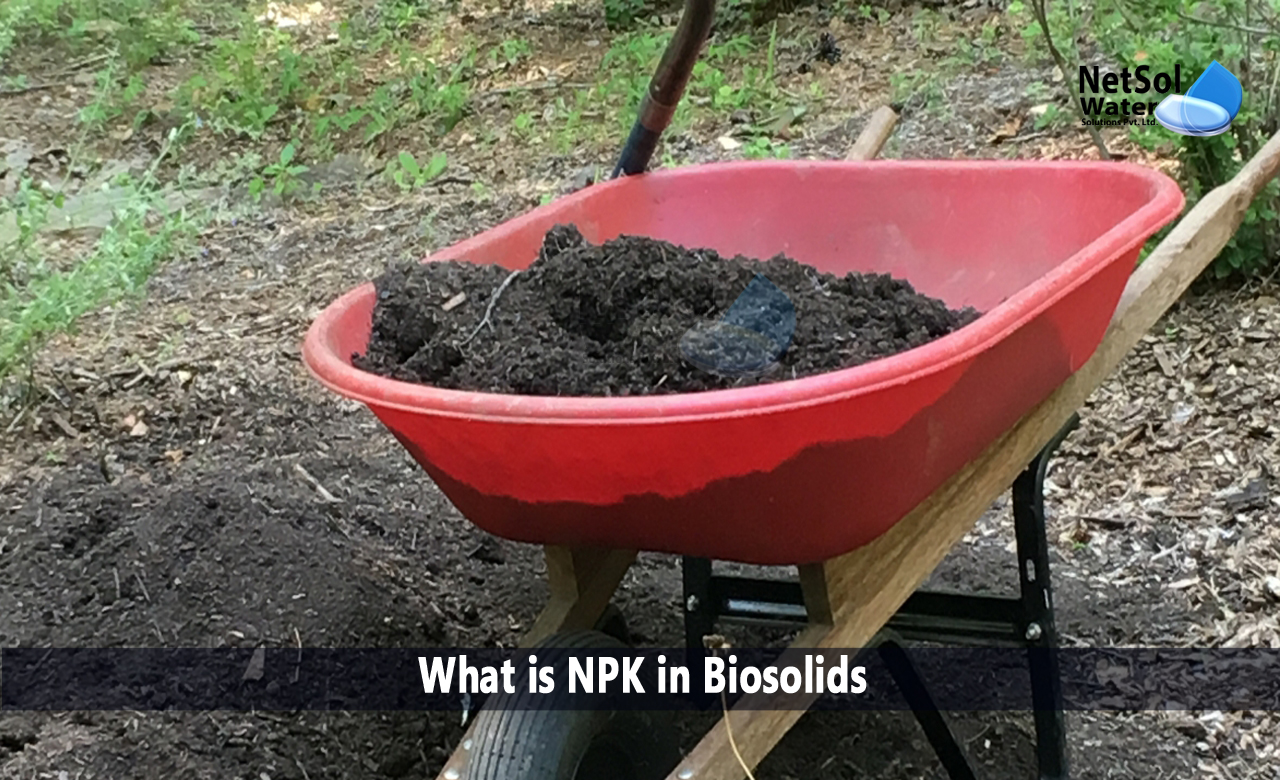What is NPK in Biosolids?
Agricultural methods frequently cause the soil's organic matter content to gradually decrease, and this depletion of the soil's physical, chemical, and biological qualities, causes a decline in soil fertility. A certain portion of nutrients are required in soil, for the plants to grow well. These nutrients many include nitrogen, phosphorous and potassium.
Let's understand the concept of NPK in biosolids!
Significant levels of organic matter, nitrogen (N), phosphorus (P) and potassium (k) are present in biosolids, which can help increase crop productivity.
Biosolids also have an economic advantage because they are typically provided and applied, at no cost to the farmer. Farmers must effectively manage biosolids applications to get the greatest benefits, guarantee long-term soil productivity, and reduce any potential environmental dangers.
Additionally, using biosolids necessitates adhering to a number of legal criteria.
Application of biosolids containing NPK
When applied to the land in a way that preserves or enhances environmental quality, while also protecting public health, EPA-recognized biosolids (Class A and B) are advantageous:
1) For the growth of plants, biosolids supply the elements nitrogen (N), phosphorus (P), potassium (K), calcium, magnesium, sulphur, and micronutrients.
2) It has been demonstrated that adding biosolids to soil can improve aeration, reduce wind and water erosion, and boost the soil's ability to hold onto water.
Appling biosolids containing NPK can be a good opportunity for farmers!
Instead of being considered a method of disposal, the land application of biosolids should be seen as a chance, to make use of the plant nutrients included in the substance.
The following actions should be followed when using various kinds of biosolids as fertilizer:
1) figuring out the crop's nutritional needs at a reasonable yield target;
2) determining the biosolids' nutritional content;
3) calculating the nutrients' availability to crops as a percentage;
4) calculating the rate of application.
These procedures will assist you in applying the correct quantity (agronomic rate), but the timing and technique of application will guarantee the efficacy of applied nutrients.
Crop nutrient requirement
Biosolids should not be added to the soil beyond what the growing crop requires, in terms of nutrients. By avoiding over application, nutrients will be used effectively, and their leaching and discharge into the water system will be reduced.
Salinity issues and nitrogen build-up in soils are typically not caused, by biosolids application at agronomic rates. Any cropland that is going to get a biosolids application, should first have the fertility of the soil assessed. To monitor the quantity and balance of nutrients in soil, on property receiving biosolids treatments, periodic soil testing is advised.
Biosolids' nutrient availability to Crops
Nutrients in biosolids cannot be substituted for those in commercial fertilizer, because not all nutrients are immediately accessible to a crop in the year of application.
When microbes break down organic materials, several elements are liberated. Components in the soil may mix with other components, rendering them unavailable to the crop.
Plant nutrients available by using biocides
Various nitrogen sources may be available during the application year. All inorganic nitrogen, including nitrate and ammonium, may be readily available and used by plants. However, a significant amount of NH4-N will be lost to the air as ammonia (NH3) gas, if biosolids are placed to the soil surface and not promptly integrated.
The additional ammonium will be subject to nitrification, which will cause the quick creation of nitrate-N and perhaps leaching loss. To make nitrogen available to plants, organic nitrogen must be changed into inorganic forms. The availability of organic N may range from 10 to 50 percent in the application year, and 5 to 20 percent in the next year.
What do we offer?
For local authorities and operators, the growing amount of biosolids generated by wastewater treatment, in tandem with population growth and urban sprawl, is a major source of concern. Biosolids treatment is now required in order to recover products and reduce volume of waste.
For further information from Netsol Water team of experts, or to make a purchase of water and wastewater treatment plants, please contact us at +91-9650608473 or enquiry@netsolwater.com



